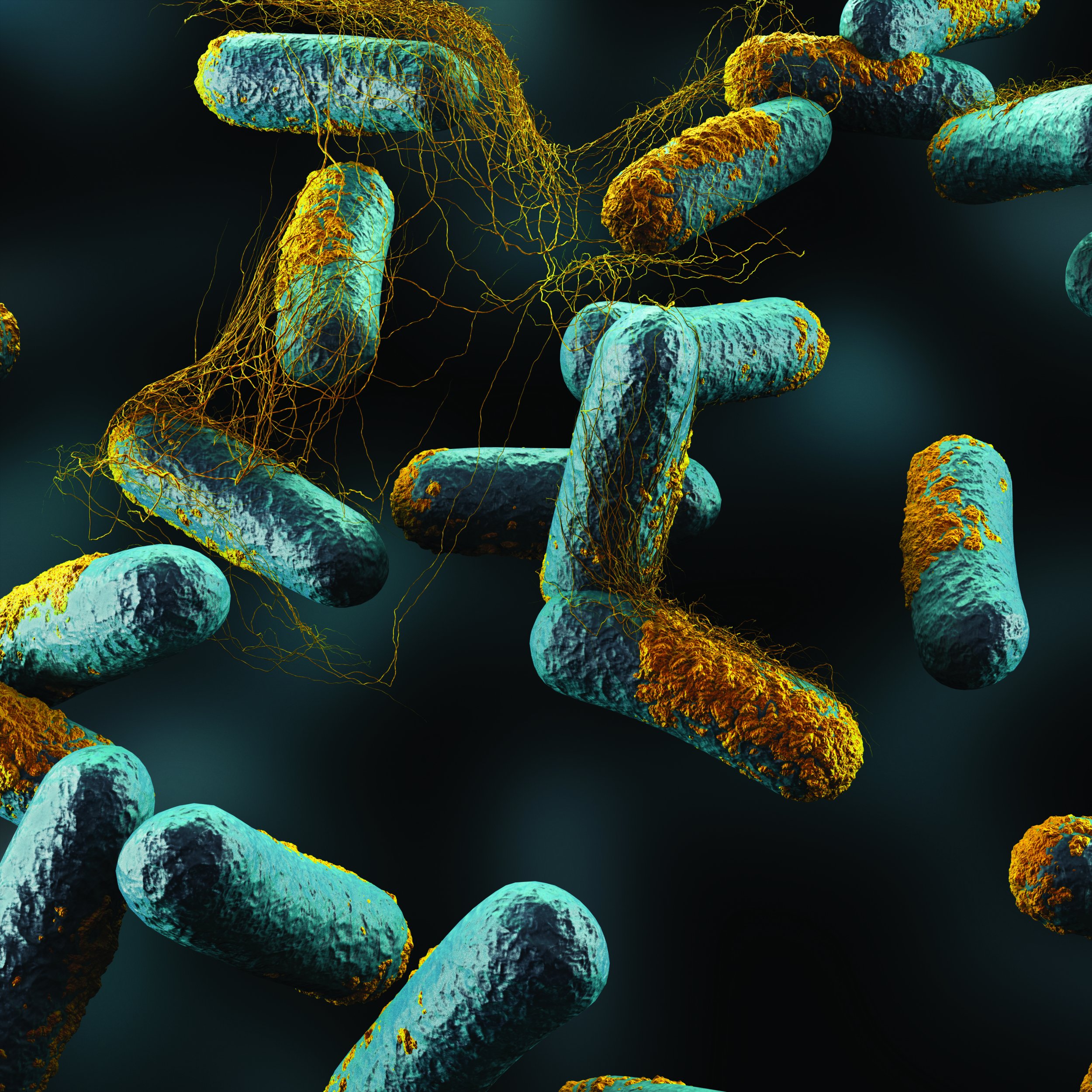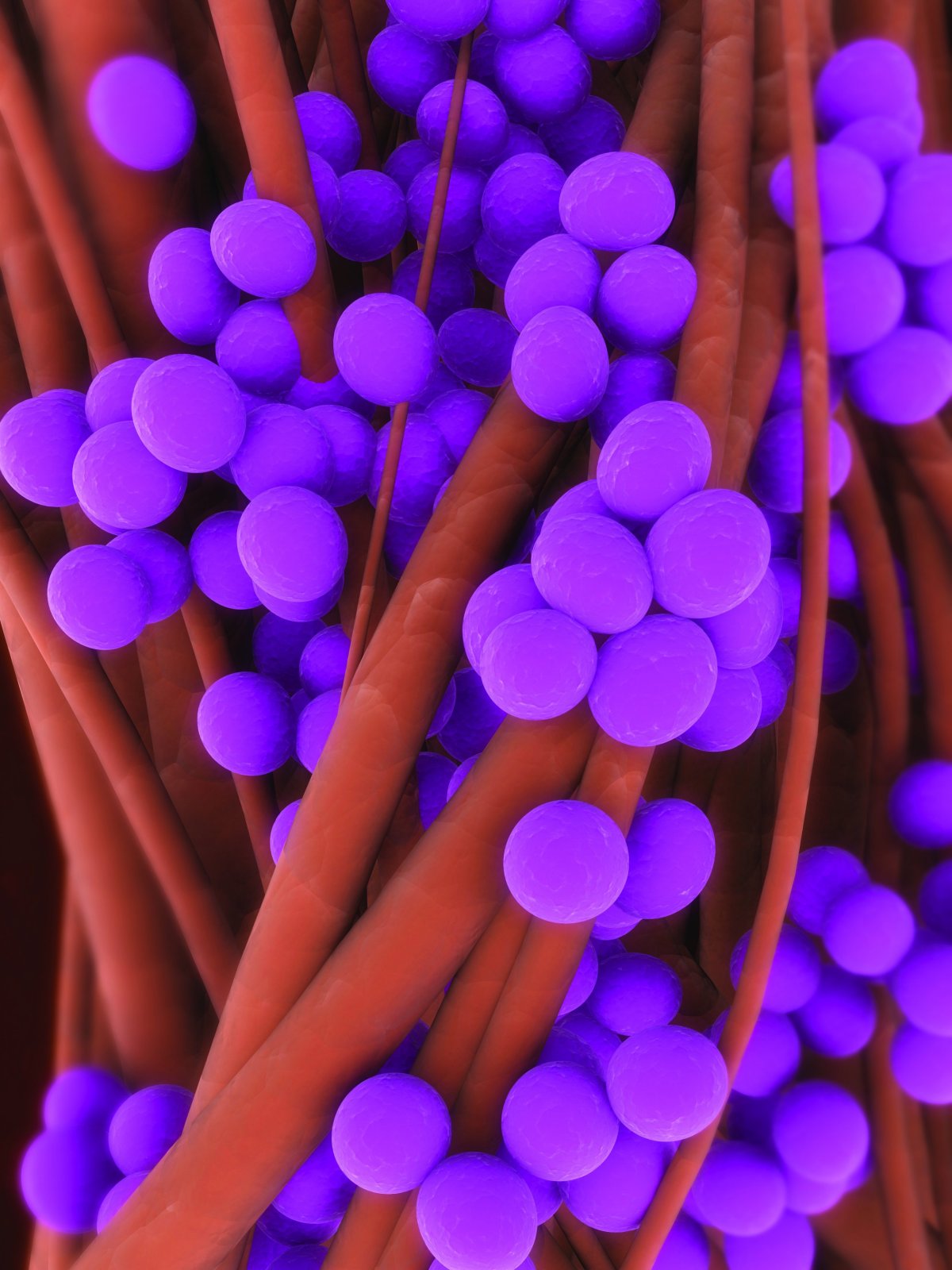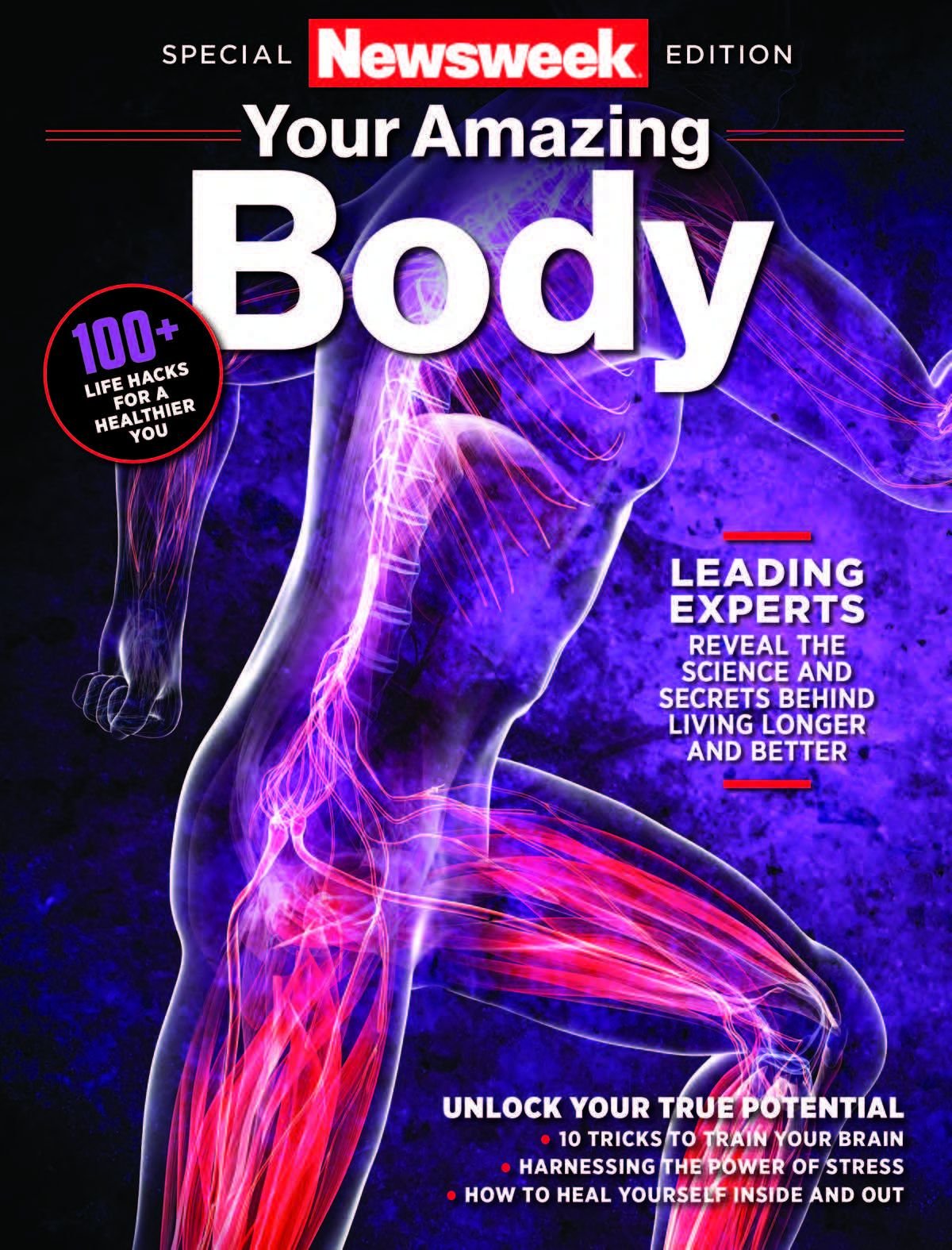
Science explains how intestinal bacteria could be inhibiting your weight loss regime. This article, along with others that explore mind, body and soul, is excerpted from a Newsweek Special Edition.
The grapefruit diet, the Atkins diet, low-fat diets, low-carb diets, the cabbage and soup diet: They and all the other fad diets make the health establishment roll its collective eyes. The only way to lose weight, according to every reputable textbook and medical society, is to burn more calories than you consume. And if you are adding pounds, the reason, pure and simple, is that you are consuming more calories than you expend. Weight gain is a straightforward matter of calories in minus calories out, they maintain.
But while the basic math is right, the meaning of "calories in" isn't what we've been taught. The calories that matter are not simply the number printed on grocery items, fast-food menus and those guilt-inducing signs next to Starbucks brownies. The calories that count are those extracted by your digestive enzymes and—as more and more research is showing—the trillions of bacteria in your intestines. People whose gut bacteria are better at digesting fats and carbs than their neighbor's will absorb all 1,500 calories in a Friendly's Ultimate Grilled Cheese Burger Melt, while their neighbor will absorb fewer. So even in people with identical metabolisms, the effects of eating identical foods can be different.
The bacteria-made-me-fat idea has been gathering steam since 2006. In that year, Jeffrey Gordon of Washington University and colleagues reported in a paper in Nature that obese mice and slim mice have different populations of gut bacteria. Crucially, they showed that the bacteria caused obesity, rather than obesity producing a specific mix of bacteria. When the scientists plucked bacteria called Firmicutes from obese mice, then put them in the bacteria-free guts of mice raised in a sterile environment, the latter bulked up within 10 to 14 days—even though they ate less.

Why? Firmicutes, it seems, are more adept at liberating calories from food than are bacteria from the other common lineage, Bacteroidetes. Firmicutes can digest complex sugars that neither the mice's own enzymes nor Bacteroidetes can, breaking them into simple sugars and fatty acids that the mice's intestines then absorb and turn into more mouse. People harbor bacteria from these same two lineages, with the obese among us having more Firmicutes and fewer Bacteroidetes than slim people, exactly as in fat and lean mice. Gordon's team had 12 obese people follow a low-fat or a low-carb diet to lose weight, and the result was an increase in Bacteroidetes and fewer Firmicutes—which is the profile of slim people. The more Bacteroidetes, the more weight the volunteers lost.
Here the trail peters out, however. Although Gordon's experiment shows losing weight can tip the bacterial balance away from bugs that extract the maximum calories from what we eat, what's needed is a way to tip that balance and thereby lose weight, rather than lose weight and thereby tip the balance of gut bacteria. There are some tantalizing clues that the former may be possible. A study published in 2010 found that Japanese people harbor gut bacteria that digest nori—the seaweed in sushi—but Westerners do not, probably because of the Japanese diet (lots of fish and thus marine bacteria, which digest nori). That suggests that "what you eat is proving to be one of the major determinants of…the community of bacteria living in your intestines," says microbiologist Justin Sonnenburg of the Stanford University School of Medicine. Drugs, too, could tip the intestinal balance toward slimming bacteria. As Randy Seeley, an obesity researcher at the University of Cincinnati, warns, however, "Some antibiotics may make things worse by changing the types of flora that thrive in the gut. But I wouldn't be surprised to see people with nefarious motives say to people trying to lose weight: 'You must have the wrong bacteria; I have something that will help you.'"
Not surprisingly for a field this new, the precise way in which gut bacteria affect weight is a matter of intense dispute. The idea that different bacteria extract more or fewer calories from the food we send their way, as Gordon's studies suggest, is only one possibility. Another possible explanation is that gut bacteria contribute to obesity (as well as to type 2 diabetes, which often goes along with being overweight) by altering the immune system. The idea here is that gut bacteria interact with intestinal cells in a way that causes them to secrete cytokines, molecules that can cause low-grade inflammation. This inflammation can, in turn, trigger insulin resistance (the mark of type 2 diabetes) and increased appetite.
As scientists work out the details by which gut bacteria make us fat, health mandarins need to look beyond the simplistic calories in/calories out mantra for explanations of the obesity epidemic. Yes, of course our 21st-century diet (Outback's 1,565-calorie Bloomin' Onion, anyone?) and couch-potato ways are among the culprits. But so might be less obviously poor food choices that encourage the proliferation of the gut bacteria that squeeze every calorie out of what we send their way. "I think the idea that foods, drugs or other things in our environment might contribute to the epidemic by changing gut microbes is a distinct possibility," Seeley says. With little progress being made in the fight against obesity—a new report from the Trust for America's Health and the Robert Wood Johnson Foundation finds that the prevalence of adult obesity rose in 28 states over the past year and fell in none—bold new ideas are needed more than ever.
Your digestive gas is made up of mostly nitrogen, hydrogen and carbon dioxide, with a little oxygen and occasionally some methane. Some of these substances are also found in the air we breathe. Gas and bloating occur when carbohydrates undigested by the small intestine ferment in the colon, causing the most recognizable (and least convenient) side effect of gas: flatulence. If gas becomes excessive rather than regular, or if it becomes particularly foul, these can be symptoms of a chronic problem. Exercise helps force out trapped gas by promoting movement in the muscles of the GI tract. While any kind of physical activity can help, a combination of aerobic exercise and core strengthening moves can specifically target the muscles that help move food and gas through your system more efficiently. It can also help to eat smaller, more frequent meals, which are easier for your body to break down. According to the Mayo Clinic, chronic excess gas can be associated with diverticulitis or an inflammatory bowel disease, such as ulcerative colitis or Crohn's disease. Excess gas and bloating may also be a symptom of bacterial overgrowth in the small intestine from conditions such as diabetes. Even though everyone has gas every day, too much too often might necessitate a trip to the doctor.
By Sharon Begley
This was excerpted from Newsweek's Special Edition, Your Amazing Body: Leading Experts Reveal the Science and Secrets Behind Living Longer and Better, by Issue Editor James Ellis.

Uncommon Knowledge
Newsweek is committed to challenging conventional wisdom and finding connections in the search for common ground.
Newsweek is committed to challenging conventional wisdom and finding connections in the search for common ground.
About the writer
To read how Newsweek uses AI as a newsroom tool, Click here.








